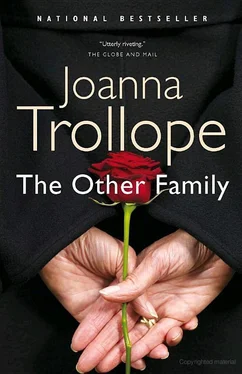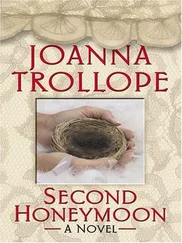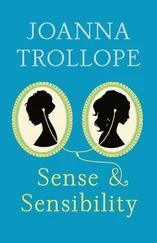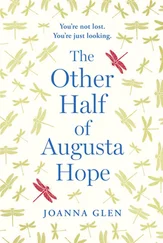Joanna Trollope - The Other Family
Здесь есть возможность читать онлайн «Joanna Trollope - The Other Family» весь текст электронной книги совершенно бесплатно (целиком полную версию без сокращений). В некоторых случаях можно слушать аудио, скачать через торрент в формате fb2 и присутствует краткое содержание. Жанр: Старинная литература, на английском языке. Описание произведения, (предисловие) а так же отзывы посетителей доступны на портале библиотеки ЛибКат.
- Название:The Other Family
- Автор:
- Жанр:
- Год:неизвестен
- ISBN:нет данных
- Рейтинг книги:5 / 5. Голосов: 1
-
Избранное:Добавить в избранное
- Отзывы:
-
Ваша оценка:
- 100
- 1
- 2
- 3
- 4
- 5
The Other Family: краткое содержание, описание и аннотация
Предлагаем к чтению аннотацию, описание, краткое содержание или предисловие (зависит от того, что написал сам автор книги «The Other Family»). Если вы не нашли необходимую информацию о книге — напишите в комментариях, мы постараемся отыскать её.
The Other Family — читать онлайн бесплатно полную книгу (весь текст) целиком
Ниже представлен текст книги, разбитый по страницам. Система сохранения места последней прочитанной страницы, позволяет с удобством читать онлайн бесплатно книгу «The Other Family», без необходимости каждый раз заново искать на чём Вы остановились. Поставьте закладку, и сможете в любой момент перейти на страницу, на которой закончили чтение.
Интервал:
Закладка:
The mother was looking back at the case of flutes.
‘It’s my life’s work, trying to be firm,’ she said.
Later, on the train, speeding home through Byker and Walker and Wal send, Margaret thought about the episode with the flute, and how Scott would have told her that, even if she was the generation she was and proud to be a plain-speaking Northerner, she shouldn’t have interfered. And thinking of Scott made her think, in turn, of the piano, and then the piano led to thoughts of the family who had had the piano and how they must be feeling, and of the girl in that family, that foreign London family, who played the flute and who had said to Scott – boldly, in Margaret’s view – that one day she would like to hear him play. That girl, that Amy, would be grade seven or eight by now, eight if she’d inherited anything of Richie’s aptitude, she’d be playing the Bach Sonatas, and Vivaldi, she wouldn’t be whining on about wanting a flute the colour of candyfloss. And yet it was good that Lorraine was playing anything at al , even if it was only because her mother made her, just as Margaret’s mother, hardened by never knowing any indulgence in her own childhood, had made Margaret and her sister learn the survival skil s that would mean they would never be doomed for lack of a basic competence. Margaret hadn’t fil eted a fish in years, but she could stil do it, in her sleep.
At Tynemouth metro station, Margaret helped a girl, struggling with a baby in a buggy, out of the train. The girl was luscious, with long blonde hair pinned carelessly up and a T-shirt which read, ‘Your boyfriend wants me.’ The baby was neatly dressed and was clutching a plastic Spiderman and a packet of crisps.
‘Ta,’ the girl said. She slid a hand inside the neck of her T-shirt to adjust a bra strap, and Margaret, recal ing the little episode by the case of flutes, refrained from saying that she’d have been happier to see the baby with a banana. When she was that girl’s age, she thought, she and Richie were going to the Rex Cinema together, where what went on in the back row wasn’t something you’d have told your mother about, but equal y wasn’t what would have resulted in a baby.
‘You take care,’ Margaret said.
The girl laughed. She had wonderful teeth too, as wel as the skin and the hair. She couldn’t have been much more than eighteen. She gestured at the baby.
‘Bit late for that!’
At Porter’s Coffee House at the back of the station, Margaret bought a cup of coffee, and took it to a table by the wal , below a poster advertising the Greek God Cabaret Show, ‘£29 a head, girls’ night out, to include hunky male hen party attendant and the country’s most exciting drag queens’.
She felt no disapproval. In North Shields, when she was growing up, there’d been ninety-six pubs within a single mile, and for every miner kil ed in the local coal mines, four fisher men were lost at sea. ‘These a has no conscience,’ people used to say, in that world of her childhood when it seemed impossible that the seas would ever run out of fish and that women like Margaret’s mother would look to a life other than that spent stooped on the windswept quays, gutting and salting the herrings and packing them into the wooden casks that Margaret stil saw now, occasional y, in people’s front gardens, planted up with lobelias. There was a statue of a fishwife in North Shields, outside the library, but Margaret didn’t like it. It seemed to her folksy and patronizing. Her mother, she was sure, would have wanted to take an axe to it.
She finished her coffee and stood up. She was lucky to have Glenda in the office, she was lucky to have someone so reliable and conscientious who was not averse to detail and repetition. Al the same she knew that, when she was out of the office, Glenda was waiting for her in a way she never felt that Dawson troubled to at home, and the knowledge chafed at her very slightly and drove her to linger on her way back in a manner her rational self could neither admire nor condone. If only, she thought suddenly and urgently, if only I had something new to go back to, something energetic, something that gave me a bit of a lift, if only Scott would do something like – like, find a girl and have a baby.
In the office, Glenda was standing by the open metal filing cabinet where the clients’ contracts were kept, rifling through files.
‘I was beginning to worry,’ Glenda said. ‘You said you’d be back by eleven-fifteen and it’s after twelve.’
‘I stopped for coffee,’ Margaret said.
‘I’d have made you coffee—’
Margaret took no notice. She moved behind her desk to look at her computer screen.
‘Any cal s? ’
Glenda said nonchalantly, ‘Mr Harrison came.’
‘Did he now.’
‘To see me.’
‘Has he offered you a job?’ Margaret said, stil looking at her screen.
Glenda al owed a smal offended silence to settle between them.
‘Or did he,’ Margaret said, ‘encourage you to work on changing my mind?’
Glenda slammed the filing drawer shut.
‘It’s a good offer.’
Margaret looked up. She watched Glenda walk back to her desk, and sit down, and open the folder she had taken from the filing cabinet. Then she said, ‘Do you want me to take it?’
Glenda said crossly, ‘It’s not up to me and wel you know it.’
Margaret moved out from behind her desk and came to stand in the line of Glenda’s vision.
‘What is it, dear?’
Glenda shook her head and made an angry, incoherent little sound.
‘What?’ Margaret said.
Glenda said, stil crossly, ‘He unsettled me—’
‘In what way?’
‘Wel ,’ Glenda said, ‘while he was here, I just thought what cheek, coming here when he knew you were out, and chatting me up, tel ing me what I could have if we worked with him, the money and the chances and things, and then after he’d gone I just felt flat, I just felt he’d taken something away with him and I could have cried, real y I could. The thing is—’ She stopped.
‘The thing is?’
‘I don’t want to moan,’ Glenda said, ‘you know I don’t. You know how I feel about my family. The children are lovely. And Barry … wel , Barry does his best, I don’t know how I’d be, stuck in a wheelchair al my life. But after Mr Harrison had gone, I felt something had gone with him. I can’t explain it, I just felt I’d let a chance go, and I wouldn’t get it back again.’
Margaret waited a few seconds, and then she said, ‘What chance?’
Glenda looked at the contract file on her desk.
‘You’l think me sil y—’
‘I won’t—’
‘You—’
‘What chance, Glenda?’
Glenda didn’t raise her eyes. She said quietly, ‘The chance for something to happen .’
Margaret said nothing. Then she came round Glenda’s desk, and touched her shoulder briefly.
‘Me too,’ Margaret said.
Scott had started to ask people from work back to his flat, to hear him play the piano. Once a week or so, he’d say casual y to Henry or Adrian,
‘Fancy a singsong at mine Friday?’ and the word would get round, and eight or ten people would gather in his flat and order in pizzas, and sometimes they’d sing – Henry did a bril iant version of Noël Coward – and sometimes Scott would play something classical, and they’d pile on the sofa or lie about on the floor and just listen, and after they’d gone, Scott would be conscious of having made a brief connection, through the music, which left him feeling curiously isolated and empty when it was over. And it was in one of those post-playing moods, closing the piano lid, picking up the pizza boxes, carrying the ashtrays – disdainful y – to the bin, that an impulse to ring Amy came upon him.
Читать дальшеИнтервал:
Закладка:
Похожие книги на «The Other Family»
Представляем Вашему вниманию похожие книги на «The Other Family» списком для выбора. Мы отобрали схожую по названию и смыслу литературу в надежде предоставить читателям больше вариантов отыскать новые, интересные, ещё непрочитанные произведения.
Обсуждение, отзывы о книге «The Other Family» и просто собственные мнения читателей. Оставьте ваши комментарии, напишите, что Вы думаете о произведении, его смысле или главных героях. Укажите что конкретно понравилось, а что нет, и почему Вы так считаете.












